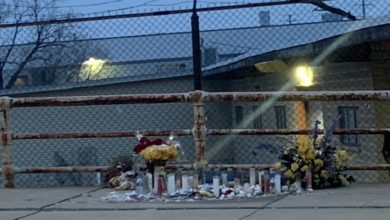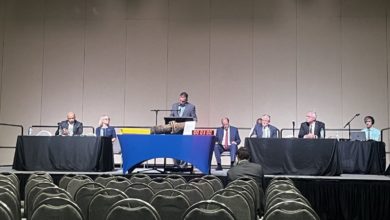The day after Christmas in 2015, Quintonio LeGrier, in the middle of a mental health crisis, called the police three times in his father’s home on the West Side of Chicago. He felt his life was in danger. When police finally arrived, he was fatally shot six times. Bettie Jones, who came to the front door, met the same fate in what the police claim was an accident.
LeGrier is not the only victim of killer cops during a mental health crisis. Over 20% of recorded killings by police in the United States were of someone experiencing a mental health crisis. Due to the convergence of the War on Poverty and the War on Drugs, police are the primary responders to mental health crises, making jails and prisons the largest provider of mental health services. Now, a new potential ordinance in Chicago called Treatment Not Trauma has been proposed in attempt to resolve this contradiction. TNT would reopen the public mental health clinics that were closed in 2012 and hire a workforce of trained mental health professionals that can respond to these crises in a nonviolent and constructive way.
Capitalism attempts to solve Chicago’s mental health crisis
In 1989, Chicago had 19 publicly-run mental health facilities; by 2012, there were 12. Then, as a part of his austerity measures, Mayor Rahm Emanuel closed half of the remaining clinics to save the city $2.2 million. The closures were in predominantly Black and Brown neighborhoods. To highlight this fact, the highest rates of behavioral health 911 calls are on the South Side of the city — the exact same areas where the disinvestment has wreaked havoc.
In the midst of the 2020 uprisings, Mayor Lori Lightfoot and Alderperson Rossana Rodriguez-Sanchez introduced competing proposals to reform the way the city responds to mental health crises. Lightfoot’s proposal had a co-responder model with police and mental health professionals responding to mental health crises, while Rodriguez-Sanchez proposed strictly using teams without police officers.
What became of these two proposals was a pilot program, Crisis Assistance and Response Engagement. CARE would have a mix of co-responder teams and non-police teams. Over a one-year period, 269 calls resulted in 198 follow ups with zero use of force events or arrests.
Due to CARE’s success and a working-class movement to “Defund the Police,” in November 2022 there was a referendum in three wards gauging support of TNT for the first time. Organizers canvassed tirelessly for months engaging with community members about what safety actually looks like. Across the wards, the referendum received no less than 92% approval.
With newly-elected Brandon Johnson at the helm, Alderperson Rodriguez-Sanchez, a champion of TNT, was appointed chair of the Committee on Health and Human Services. Both Johnson and Rodriguez-Sanchez recently attended a summit where they reiterated their support for the ordinance. The summit drew many working-class people directly affected by the disinvestment in mental health services.
Socialism would put the crisis to rest
While TNT is potentially becoming a reality for working-class people, the issue remains that the forces that closed the mental health clinics in the first place remain unchallenged by this ordinance. TNT is a people’s movement fighting for public mental health facilities because people fundamentally understand the barbaric limitations of a privatized system.
TNT is not wrong in identifying privatization as the enemy of public health, but the beating heart of privatization is capital. Capital is the force within privatization that causes it to expand and swallow up more and more sectors of our society. Capital — in a sense, money that makes more money — is the reason why public services and gains won through organized struggle come under attack so repeatedly, such as the right to an abortion or public transportation.
TNT is a good first step, but in order for it to have long-lasting and healing effects for Black and Brown communities across Chicago, this external force of capital that shut down the mental health clinics in the first place needs to be abolished.
The capitalist system is behind many mental health crises in the first place. Lack of basic human needs such as housing, food, employment, health care or clothing will cause these mental health crises for anyone. These injustices need to be tackled head-on with leadership from the people who need TNT the most: the working class.
Feature photo: Chicagoans at the Treatment Not Trauma summit discuss the impact the ordinance could have on their communities. Liberation photo






